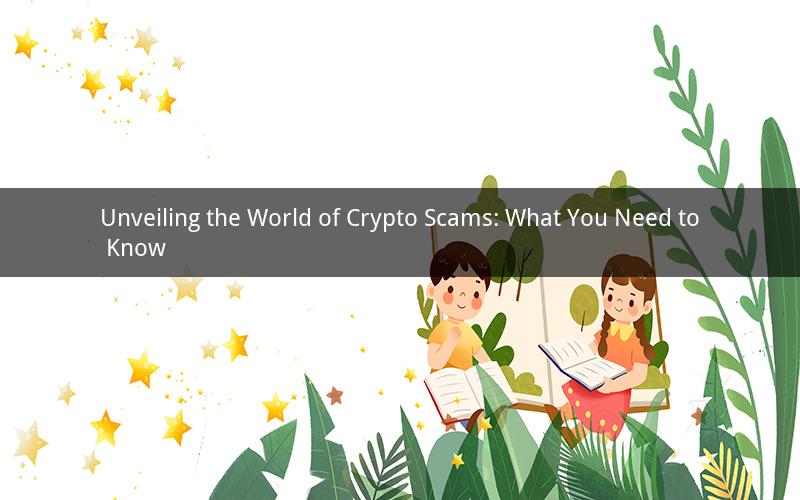
Introduction:
In recent years, the cryptocurrency market has experienced exponential growth, attracting both seasoned investors and newcomers. However, alongside this surge in popularity, the rise of crypto scams has also become a significant concern. Understanding what crypto scams are, how they operate, and how to protect yourself is crucial in navigating the volatile world of digital currencies.
What are Crypto Scams?
Crypto scams refer to fraudulent activities that target individuals or organizations involved in the cryptocurrency market. These scams exploit the lack of regulation and the anonymity provided by digital currencies. They can take various forms, including Ponzi schemes, phishing attacks, fake exchanges, and wallet hacks.
1. Ponzi Schemes:
Ponzi schemes are one of the most common types of crypto scams. They involve promising high returns on investment in exchange for depositing funds. The fraudulent scheme relies on recruiting new investors to pay off earlier investors, creating an illusion of profitability. Eventually, the scheme collapses, leaving investors with significant losses.
2. Phishing Attacks:
Phishing attacks involve sending fraudulent emails or messages that appear to be from legitimate cryptocurrency exchanges or wallets. These messages often request sensitive information, such as private keys or login credentials. Once obtained, scammers can gain unauthorized access to your account and steal your assets.
3. Fake Exchanges:
Fake exchanges mimic legitimate cryptocurrency trading platforms, tricking users into depositing funds. These fraudulent exchanges may offer attractive features, such as high trading volumes and low fees, but they lack the necessary security measures to protect your assets. Once you deposit funds, they disappear, leaving you with no way to retrieve your investments.
4. Wallet Hacks:
Crypto wallet hacks involve gaining unauthorized access to a user's digital wallet, allowing scammers to steal their cryptocurrencies. These hacks can occur through various means, including malware infections, phishing attacks, or social engineering techniques.
Protecting Yourself from Crypto Scams:
1. Conduct thorough research:
Before investing in any cryptocurrency or platform, conduct thorough research to ensure its legitimacy. Look for reviews, testimonials, and red flags that indicate potential scams.
2. Use reputable exchanges and wallets:
Choose well-established and reputable cryptocurrency exchanges and wallets. Look for platforms with strong security measures, such as two-factor authentication and cold storage for storing funds.
3. Be cautious of unsolicited messages:
Avoid responding to unsolicited messages or emails that request sensitive information. Legitimate exchanges and wallets will never ask for your private keys or login credentials.
4. Keep your software updated:
Regularly update your computer and mobile devices to ensure you have the latest security patches. This will help protect you from malware infections that can lead to wallet hacks.
5. Educate yourself:
Stay informed about the latest crypto scams and fraud techniques. By understanding how these scams operate, you can better recognize and avoid them.
FAQs:
1. Q: Can crypto scams affect anyone, regardless of their experience level?
A: Yes, crypto scams can affect individuals of all experience levels. Scammers often target newcomers who may not be aware of the risks involved.
2. Q: Are there any legal remedies available for victims of crypto scams?
A: Legal remedies for crypto scams vary depending on the jurisdiction. It is essential to report the scam to relevant authorities to increase the chances of recovering your assets.
3. Q: Can I recover my stolen cryptocurrencies if they are lost due to a wallet hack?
A: Recovering stolen cryptocurrencies after a wallet hack is highly challenging. It is crucial to take preventive measures, such as using secure wallets and keeping your software updated, to minimize the risk of such incidents.
4. Q: Are there any reputable crypto scam reporting websites?
A: Yes, there are several reputable websites where you can report crypto scams, such as the FBI's Internet Crime Complaint Center (IC3) and the U.S. Securities and Exchange Commission (SEC).
5. Q: How can I stay informed about the latest crypto scams?
A: Stay updated by following trusted news sources, joining cryptocurrency forums, and attending industry events. This will help you stay informed about the latest scams and fraud techniques.